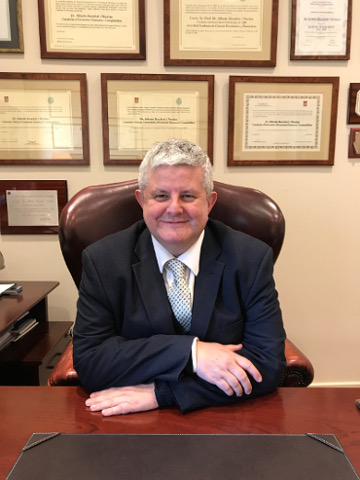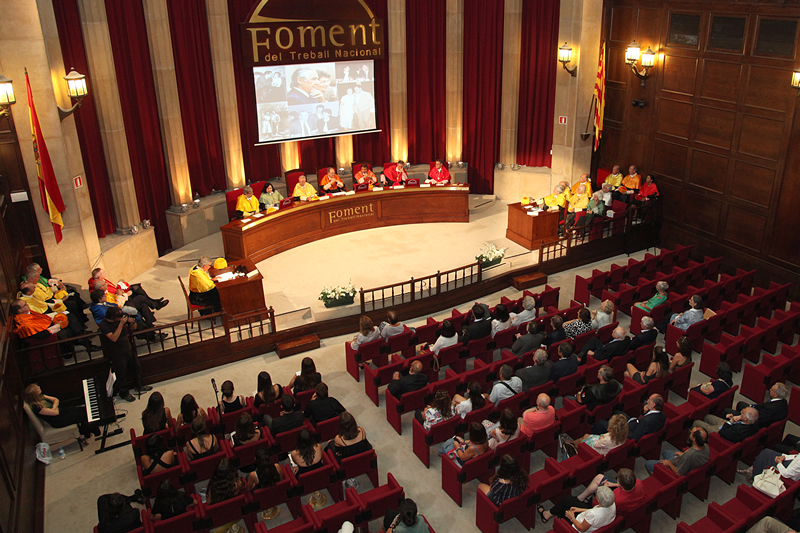José Ramón Calvo, full academician of the Royal European Academy of Doctors-Barcelona 1914 (RAED) and president of its Institute of Interdisciplinary Research, developed the novel concept of the “chronodiet” during his speech at the Molinos Conference that this year has celebrated in Arrecife the Academy of Sciences, Engineering and Humanities of Lanzarote, of which he is also a member. Calvo participated with the work “El reloj alimentario” (The food clock). The speaker explained how the biological clock that most species have tends to synchronise with the cycles of light and dark, although humans also have “peripheral clocks” that can also be affected by internal or external factors. This means that, for example, a diet can cause a mismatch in cell phones and cause unintended consequences. Nutrients can modulate the expression of certain genes, regulated by the circadian rhythm, which will alter the behaviour of the feeding in the hypothalamus, which is the regulator of the sensations of hunger and satiety, that is to say the “appetite watch” of the organism.

Dr. José Ramón Calvo Fernández
“The circadian rhythm can also be synchronised with food and digestion since the intestine remains active during the day, which is the best time for the processes required for the efficient absorption of nutrients, -Calvo said-. When there are changes in feeding schedules, it may be possible to disturb or interrupt the normal rhythm of intestinal function and subsequently to cause gastrointestinal disorders”. The academician explained that there are two hormones, leptin and adiponectin, responsible for regulating the intake and functioning under circadian rhythms. The concentration of leptin correlates positively with the total body fat, the nutritional status of the individual and the triglyceride content of the adipocytes. It acts, therefore, as a marker of the body’s energy reserves.
The concentration of leptin is higher during the night than when adiponectin levels fall. The dream and the moment it occurs influence the regulation of these hormones that control hunger and satiety.
“The chronodiet tries to adapt the composition of the food to the biological rhythms of the body” explained Calvo-. “It is not by chance that feeding behaviour is conditioned by the neuromediators responsible for providing energy during the day and rest at night of nutrients which do their best time to fulfil their function according to the time they are consumed. The most recent research in this field determines that food is, together with light, the most important external synchronizer of the circadian rhythms of our organism”.




